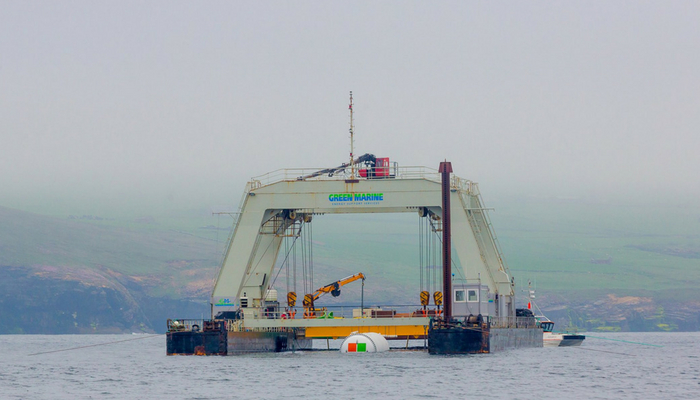Welcome back to our latest edition of the CoTalent Tech Review. A round-up of the most exciting trends and developments shaping the tech landscape in Australia and around the world.
From Microsoft’s underwater data-centre to IBM launching the fastest supercomputer in the world, this round-up sees tech innovation soar to new heights.

Google pledges not to use AI in the development of weapons
Google has published a new set of Artificial Intelligence (AI) principles to govern the company’s use of AI. This comes after the controversy incited by Project Maven, a contract with the U.S. military involving image analysis on drone footage. The tech giant has now confirmed that they will not use AI in the development of weapons or for surveillance that violates internationally accepted norms.
Find out more about the guidelines on CIO.
Microsoft confirms it will acquire GitHub for $7.5 Billion
Microsoft has officially announced that it will acquire GitHub for $7.5 billion. GitHub’s 85 million repositories help to make it one of the world’s most popular websites for developers. While Microsoft has warmed to open source in recent years and claims it plans to maintain a ‘developer-first ethos’, the acquisition could pose ethical dilemmas for the tech giant when it comes to moderation.
Read more about the potential challenges of the acquisition on Wired.
LinkedIn takes the plunge into location-based services
LinkedIn has a launched a new feature called Your Commute that will let jobseekers check out the location and commute time to specific businesses. It is now available globally on mobile, providing location data for all businesses where LinkedIn has location information and allows the platform to provide more relevant job recommendations.
Find out more about the new features on TechCrunch.
Microsoft’s undersea datacenter project has entered a new phase
Microsoft has announced the second phase of Project Natick, a research experiment designed to test the benefits of deploying large scale data-centres underwater. Microsoft sank a 40-foot long data-centre pod onto the seafloor off the coast of the European Marine Energy Centre in Orkney, north of Scotland. The pod is designed to operate without maintenance for five years.
Read more about phase two of Project Natick on ZDNet.
Airbnb will now let hosts register as emergency volunteers before a disaster hits
Airbnb is expanding their Open Homes program, an initiative designed to allow hosts to provide emergency housing after a disaster, free of charge. The new pilot programme will enable hosts to list their properties ahead of a disaster to facilitate a faster response time.
Learn more about Airbnb’s new programme on The Verge.
IBM and U.S. Department of Energy launch the fastest supercomputer in the world
IBM and the U.S. Department of Energy’s Oak Ridge National Laboratory have unveiled Summit – “the world’s most powerful and smartest scientific computer”, according to IBM. The supercomputer is powered by Nvidia GPUs and boasts an impressive 200,000 trillion calculations per second.
Learn more about Summit on TechCrunch.
This month’s round-up highlights one of the major challenges in the tech space today – pushing the boundaries of innovation, while honouring ethical, social, and corporate responsibility. With great power comes great responsibility, and these ethical challenges are certainly at the forefront of many debates right now.
Here at CoTalent, we like to keep our finger on the pulse of the tech industry and think it’s important that you do too! Stay tuned for our next round-up of the CoTalent Tech Review.
Keep up to date with the latest tech job openings by signing up for CoTalent job alerts.
